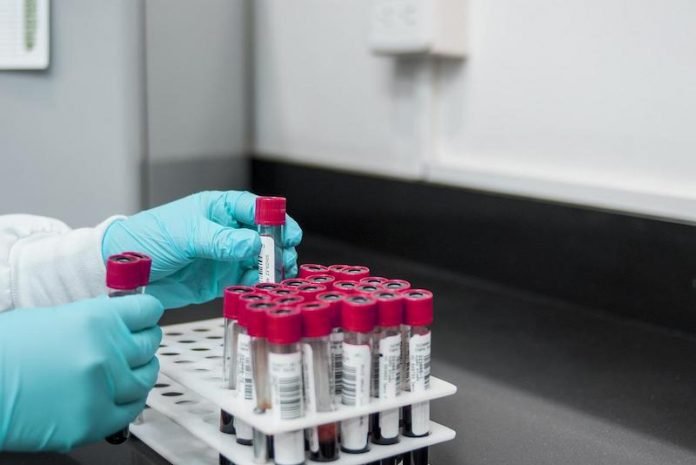
Scientists from Université de Montréal found the amount of a SARS-CoV-2 genetic material—viral RNA—in the blood is a reliable indicator in detecting which patients will die of the disease.
They were able to determine which biomarkers are predictors of mortality in the 60 days following the onset of symptoms.
The research is published in Science Advance and was conducted by Dr. Daniel Kaufmann et al.
Despite advances in the management of COVID-19, doctors have found it hard to identify patients most at risk of dying of the disease and so be able to offer them new treatments.
In the study, researchers analyzed blood samples collected from 279 patients during their hospitalization for COVID-19, ranging in degrees of severity from moderate to critical.
They measured amounts of inflammatory proteins, looking for any that stood out.
At the same time, the team measured the amounts of viral RNA and Finzi’s levels of antibodies targeting the virus.
Samples were collected 11 days after the onset of symptoms and patients were monitored for a minimum of 60 days after that.
The team found that the amount of viral RNA in the blood was directly associated with mortality and provided the best predictive response.
They also found that including additional biomarkers did not improve predictive quality.
To confirm its effectiveness, the team tested the model on two independent cohorts of infected patients.
It made no difference which hospital the patients were treated at, nor which period of the pandemic they fell into: in all cases, the predictive model worked.
If you care about COVID, please read studies about what heart and stroke patients should know about COVID-19 vaccines, and new antiviral drug 10 times more effective against COVID-19.
For more information about COVID, please see recent studies about people who are the key to spreading COVID-19, and results showing mouthwashes may help eliminate COVID-19 virus.
Copyright © 2022 Knowridge Science Report. All rights reserved.



